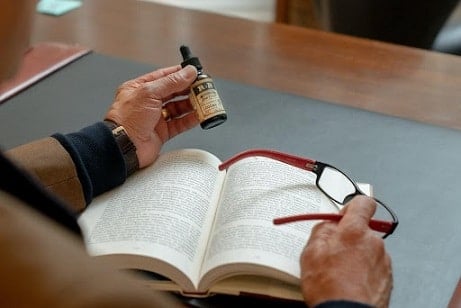In this technological world, it is common to find information that contradicts preconceived notions daily. As much as CBD continuously receives wholesome support, it is safe from people’s myths and misconceptions of its effects.
Technically, CBD is not a new product on the market, but this does not mean there are zero speculations about the compound. The nature of cannabidiols myths and misconceptions take two routes. On one side, some supporters believe it can do it all, and on the other, opposers think it is just unnecessary hype. Which of them is true?
What are CBD Tinctures, and How are They Made?
CBD tinctures are one of the common by-products of the hemp-derived compound. For those new to the alternative medication of the cannabidiol world, tinctures may mean the same as oils. Is this factual?
Tinctures are remarkably different from oils because of the extraction processes. They come to be by adding water and alcohol to the extracts of a hemp plant. The process results in a pure compound concentration with hints of terpenes and other naturally occurring elements. Due to their extraction process, they tend to be pure and concentrated with CBD.
Within the current market, several types of tinctures are bordering on the hundreds mark. If you log onto a site such as https://askgrowers.com/blog/best-brands-of-CBD-tinctures-reviews-of-manufacturers-and-purchase-guide, you will come across multiple brands of tinctures. All of these companies and brands swear by the quality and effectiveness of their products.
Like with many other CBD products, the best way to identify the quality of tinctures is by sticking to a well-known brand. These reputable brands provide their consumers with reports on ingredient lists of the products as well as third-party Certificates of Analyses (COA).
Which is Better: CBD Oils or Tinctures?

According to Dr. Tieraona Low Dog, M.D. and a herbal medical expert, some tinctures are not solely made from alcohol. The extraction process of these tinctures utilizes glycerine or vinegar. She further states that individuals sensitive to alcohol-extracted products could use these instead.
In its most basic sense, the user’s preferences determine the oil versus tincture debate. While some prefer infused oils, others would rather go for infused tinctures. The main question is, are there any differences in using either?
Dr. Tieraona’s views point out that alcohol extractions are more effective than oil ones. The concentration of cannabidiol in a tincture tends to be higher than with oils. Furthermore, she argues that solvent-based tinctures are purer and contain numerous other hemp compounds.
This discrepancy in concentration results in a wholesome set of benefits for the consumer. Other than receiving a higher dosage of CBD, they also benefit from the additional elements such as terpenes, CBG, and any other compounds that get carried through to the final product.
Another reason people go for tinctures over oils is that the former comes in different flavors. An additional manufacturing process involves the addition of essential oils such as strawberry, cinnamon, citrus, banana, bacon, and other flavors. This diversity allows consumers to pick from a wide variety, ensuring their needs are met.
All in all, the final decision of whether or not to buy infused tinctures or oils lies in the needs of the consumers.
Top 10 Misconceptions of CBD Tinctures Debunked
A review of the ins and outs of cannabidiol revealed a variety of myths and misconceptions on the issue. The following are the top ones we felt were common among consumers using CBD tinctures for various purposes.
CBD Tinctures Get you High
One of the driving factors for an aversion towards the use of cannabidiol is the misconception that using these infused products results in a person being high. Some people associate any hemp or marijuana by-product with the customary high that is gotten from using THC. This assumption is false because, unlike THC, cannabidiol does not contain the psychotropic feature that leaves people high.
Regardless of the potency of the tincture or the additional ingredients it contains, the compound does not result in being high. All CBD products have a controlled level of 0.3% THC or less. Failure to adhere to this government stipulation would make the products illegal.
Excessive Amounts of CBD Tinctures Have No Side Effects
Many people believe they can take as much cannabidiol as they want, and it would not result in any side effects. This belief is a misconception. Though the compound does not get people high, it does have certain effects on the body. When consumed in recommended amounts, it reacts with the CB1 and CB2 receptors leading to effects such as relaxation, help with sleep, improved appetite, and the like.
On the contrary, when taken in excessive amounts, it can result in various side effects. Common ones include nausea, vomiting, diarrhea, increased fatigue, drowsiness, and dehydration. The chances of dying from a CBD overdose are minimal, and no recorded cases exist. Treatments for cannabidiol overdose mostly require rest and hydration.
CBD is not Scientifically Backed
Anti-CBD groups and people all claim insufficient evidence connecting the compound with some of its famed benefits. This line of thinking is false because, over the past couple of decades, numerous scientific backing has shown the health benefits of cannabidiol. To mention a few, some studies prove it reduces pain and helps treat childhood seizures, anxiety, and many others.
CBD Tinctures Taste Bad
For the most part, taste and smell are relative aspects that only a person can determine. What works for one person does not work for another. Regardless of this factor, it is misguided to rule out all tinctures as foul-smelling and tasting. Some of these tinctures use additives to improve the taste and smell. There are ones that smell like fruits, others like bacon, and some that are naturally flavored.
CBD Can Turn into THC
Of all the misconceptions about cannabidiol, this is the most scientifically unsound reasoning. Scientifically one compound cannot turn into another without reacting with other chemicals. The belief that CBD can turn into THC once consumed is wholesomely wrong. Once ingested, cannabidiol remains as cannabidiol and gets broken down without changing into anything else.
CBD Use is Detectable on a Drug Test
A common misconception among athletes is that their CBD use is detectable via a drug test. In the past, this was a fact, but since 2018, it got removed from the FDA’s list of prohibited compounds. The removal means that drug tests do not test for cannabidiol; hence, they cannot appear in a random drug test. Regardless of the same, if the lab technicians test for the compound itself, it will be present. The only difference with the past is there are no ramifications for using infused products that do not contain THC.
The More CBD You Take, the Better
With this particular misconception, it all comes down to tolerance. The belief that the more cannabidiol you take, the more effective the results you get is not true. Each human body only processes a certain amount of compound per what the body needs at that specific time. People with higher tolerance levels will need more compounds, and those with lower ones less. Taking more CBD than you are used to could lead to negative side effects and not faster results.
CBD Takes Effect Immediately
Regarding how cannabidiol works, it takes time between ingestion and absorption into the system. Tinctures are either taken orally or added to foods and drinks. This ingestion process means that the compound needs to get digested and absorbed into the bloodstream for the effects to get felt. No tincture would take effect immediately. They take 15-30 minutes to start making any effect.
Taking CBD is the Same as Sleeping Pills
Contrary to common belief, tinctures are not the same as sleeping pills. Though some have additional ingredients to help with sleep, others do not. If you need sleep, you can choose tinctures with CBN, Melatonin, and lavender flavor. Different tinctures have different effects on the user.
CBD Tinctures Are Illegal to Use
For those opposed to all things marijuana, it is understandable for them to believe that CBD tinctures are illegal to use. In the United States and the United Kingdom, any cannabidiol product that contains less than 0.3% and 0.2% THC, respectively, is legal. This assertion only confirms that tinctures, edibles, and other infused products are legal.
Conclusion
In cannabidiol products, it is common to run into changing news of how to use them and how safe they are at different points. There is excessive information on these products, necessitating a debunking of myths and misconceptions. Our ten selected misconceptions all reflect various stages of the use of tinctures. We hope that you find them helpful in your CBD use.
The author behind this piece is Denys Svirepchuk, who has contributed invaluably to AskGrowers for years. His dedication to growing the numbers of marijuana users can be seen in how detailed and well-researched his articles always are on different topics. Overall, Denys’ contribution offers thousands of AskGrowers fans as much information as they needed.
Register free for IMEX Frankfurt May 23-25 AND click here to schedule your FREE Photo / Video Interview with eTurboNews during IMEX




